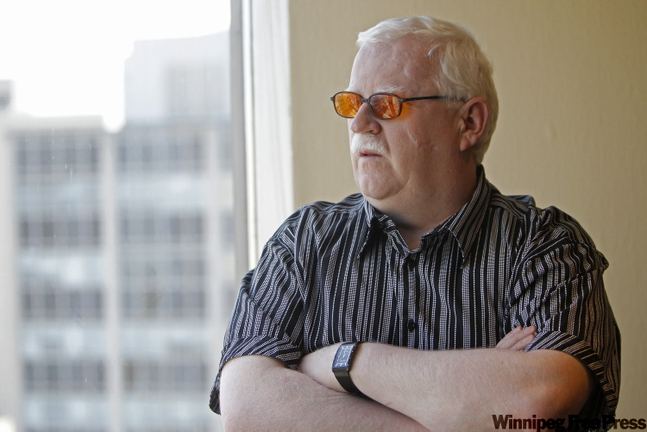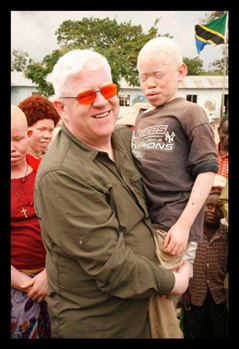Saving Fellow Albinos From Killings in Africa
Brother Paul Ash heads to Tanzania in April. As we go about our day it is often hard for us to think what it would be like to live 24/7 in fear of our lives. One of our very own, Paul Ash from Southlands Community Church, is becoming all too familiar with the plight of Albinos in Africa. Please read the article below that was in today’s Winnipeg Free Press and join in prayer for Paul and his brother Peter as they continue to fulfill this ministry of peace for the over 200,000 people with Albinism in Tanzania alone. If you’re free Saturday night, why not attend the 60’s Dance at Southlands and partner with Under the Sun financially to continue this valuable ministry? A Winnipeg businessman is trying to save fellow albinos in Africa from superstition and slaughter. “It strikes me very personally,” said Paul Ash on Monday. Ash’s brother, Peter, in Surrey. B.C., founded a registered charity to help Tanzanians with albinism who’ve been shunned and even murdered for their lack of skin pigment. Peter Ash, founder of a charity to help albinos in Tanzania, holds Menyasi, a boy who saw his five-year-old albino sister killed. “If I was born in Tanzania, my life would be at risk,” said Ash. “I’d be afraid someone would come in the middle of night and chop off my arm or legs.” There have been 55 documented murders of Tanzanian albinos in the past two years — most often women and children, said Ash. The superstitious believe albinos are ghosts who administer curses, and ghouls have harvested their body parts as ingredients for good-luck charms. Witch doctors have exploited those beliefs, charging big bucks to the rich and powerful for the albino suffering, said Ash. In 2008, the United Nations issued a statement saying there had been 173 arrests — including five police officers — but the cases weren’t getting to court. The UN demanded the suspects be prosecuted and killers be brought to justice. So far, there have only been two prosecutions, resulting in the convictions of a just handful of perpetrators, said Ash. The stigma of albinism is partly the reason the cases aren’t getting to court, said Ash, who is leaving for Tanzania on April 14. And the country is a hot spot for the genetic disorder, he said. “Albinism is a lot more prevalent there, with about one in 30,000 here and one in 3,000 there,” Ash said. “The theory is that the genetic disorder started there and there is some research that indicates that,” he said. “Because of the stigma and persecution of albinos, there is also more intermarriage.” An albino marrying an albino guarantees any child they might have would be albino, said Ash, whose brother Peter married a non-albino and has a non-albino child. “As long as one partner does not have the defective gene, then the healthy gene is dominant.” His brother started Under the Same Sun to raise awareness in Tanzania and tell people the truth about albinism. They’ve set up an office in Dar es Salaam with a staff of 16 — mostly albino employees — doing media relations and public education, said Ash. “We’re fighting for their hearts and minds and to put to bed a lot of myths.” They’ve produced brochures and are making a feature-length documentary in English and Swahili to distribute in churches, mosques, schools and to any group that will screen it. They’re sponsoring the education of albino children and young adults in the hope that the leaders of tomorrow will be more enlightened. “We want to work hard to help young people with albinism succeed. Ultimately they become the leaders in society.” Southlands Community Church is hosting a ’50s dance fundraiser for the charity Saturday. Today is the last day to buy tickets. Call 946-9160 for information. carol.sanders@freepress.mb.ca What is albinism? Albinism is a rare, genetically inherited disorder • It affects people of all races and genders • It results in a lack of pigmentation in the hair, skin and eyes • In nearly all cases a significant visual impairment is also involved, with most being legally blind • Albinos have very little natural protection from the sun’s rays and are more susceptible to skin cancer — National Organization for Albinism and Hypopigmentation Republished from the Winnipeg Free Press print edition March 16, 2010 A2

On Saturday, Under the Same Sun is holding a fundraising event in Winnipeg.
